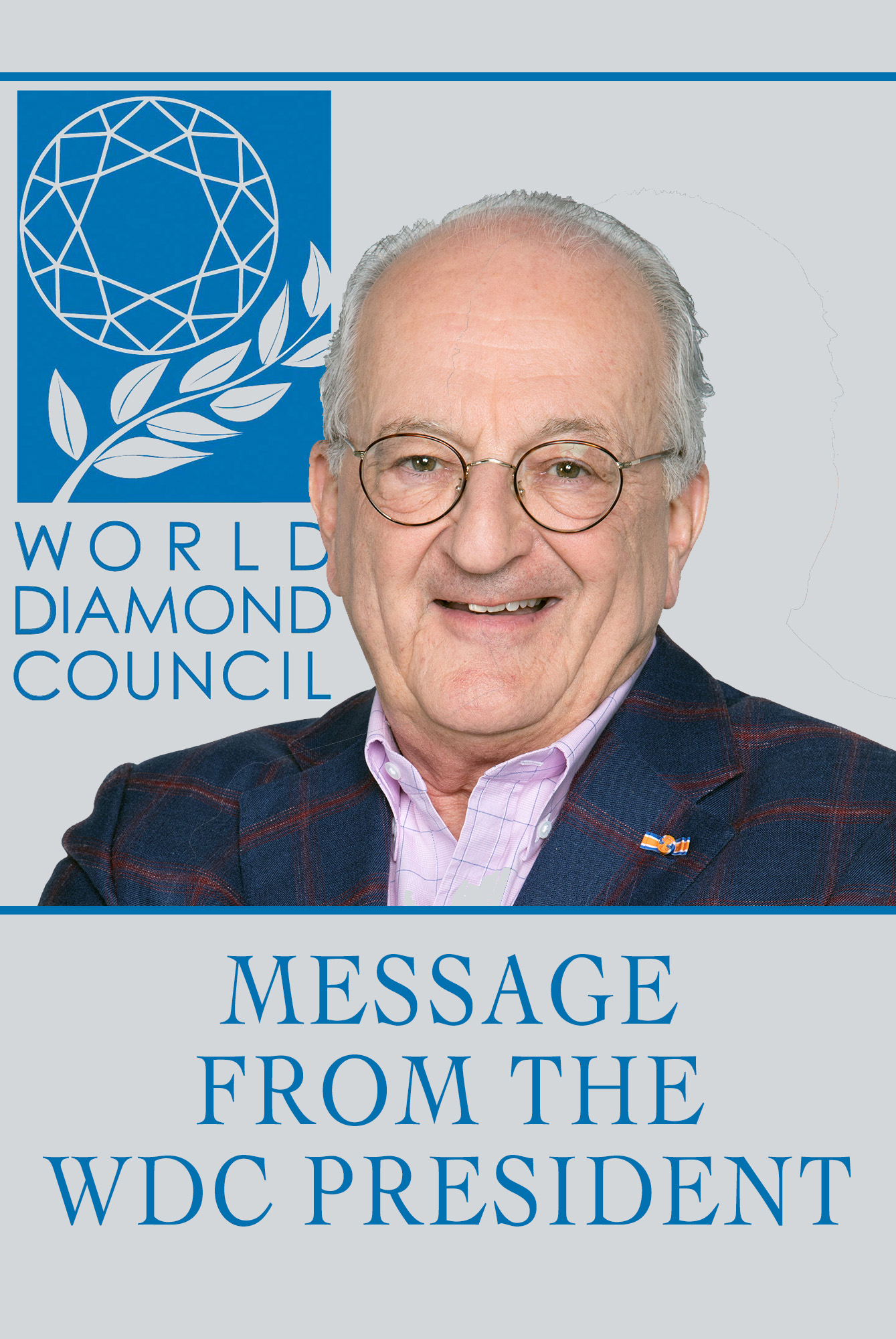IT IS SURVIVAL TIME

Dear colleagues and friends,
I retired from my business on March 2 this year, just a few days before the COVID-19 pandemic started dominating news headlines all over the world. It was bad timing for my children, Lita and Mike, who now run the family company.
In the 50 years I have been involved in the industry, I have never experienced so rapid a fall in global retail sales. And we all know about the diamond multiplier effect – if retailers’ sales shrink by 10 percent, then the wholesalers’ business will contract by at least 20 percent, as the latter group reduces the inventory it’s holding. This means that manufacturing companies are experiencing a much larger fall in sales.
So now the whole industry has reduced inventory, with the exception being the rough diamond producers. But with their sales very limited, they are cutting production.
Four months into the crisis, and we do see that certain retailers are managing to do rather satisfactory business. Pent up demand is one factor for this phenomenon. People realize that in these difficult times, the fundamental values of life are so important – health, family and love. Fortunately, diamond jewelry is a symbol for all of those, and we know from experience that the expression and realization of these values is bringing customers to the stores.
Even I, after 50 years of marriage, recently gave my wife a diamond eternity ring.
We need to ask ourselves what all this means for our industry – from the miners in the producing countries, to the polishers, the wholesalers, the jewelry manufacturers and the retailers?
We know how important rough diamond production is to the producing countries. Millions of their citizens depend on the health of our industry and the diamond supply chain. It’s easier to track what’s happening in the industrialized mining sector, with some mines being furloughed and others on minimal production. But the devastation in the informal mining sector is often hidden. We need to ask ourselves what this means for the alluvial diamond miners and what we can do about their wellbeing?
I am confident about the very large companies, but I worry about the state of artisanal and small-scale miners and diamond polishers. This is a group made of the individuals who together with their families depend almost entirely on the revenues generated by the small number of diamonds that each is able to process.
We are all overwhelmed by the tremendous pressure of a market that changed so drastically in such a short time. In this turmoil, do we still care about working conditions, the environment and social rights?
Wherever we operate, we need to think about cash flow, for this will dictate whether we, as companies, can survive. We also need to look in the eyes of the thousands of members of staff we have had to furlough. It’s a tough and imperfect world in which we live, and we are often being called to choose between unpleasant options.
To ensure our future, both as individual companies and as an industry, we each have to provide solutions to two primary challenges. If we fail in either, we will not succeed.
The first is to add value to our diamonds, creating margins without which we will go out of business. The second is ensuring the survivability of the people making the supply chain work, for without them we will not acquire the sustenance we need to operate.
As far as the first challenge is concerned, if we keep on doing what everybody else is doing, then there will be no margins to be made. We each need to specialize in one way or another. It may be offering all sizes and qualities to our customers, or just a special range of goods, small or large. It may require better financing facilities, better service, better marketing or even better IT. There are no perfect solutions; it is all a matter of creativity and management – which direction to choose, which path to follow.
In the second place we cannot lose sight of the people on which the industry depends, whether they are underground in the mines, digging in the alluvial diamond fields, working in the polishing factories or tending to customers in the stores. Are they safe and secure? Do they have health coverage? Are their families coping? Are the environments in which they reside livable?
Surviving an existential crisis such as this one, requires both a business and human perspective. In which direction will we steer our companies? Our own moral and ethical compass should be guiding our direction.
Edward Asscher
WDC President
July 2020





